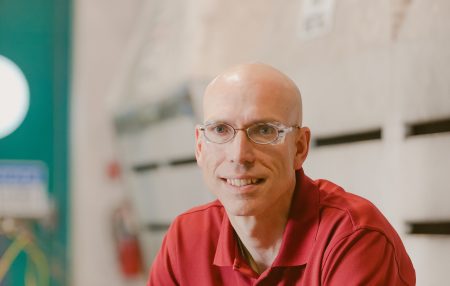
Landfill mining can recover valuable recyclable materials, including aluminum. In fact, the concentration of aluminum in many landfills is higher than the concentration of aluminum in bauxite from which the metal is derived. Now, a multidisciplinary Michigan Tech research team will determine ways to select viable and sustainable landfill sites.
Paul Sanders is the principal investigator (PI) on a project that has received a $750K research and development grant from the U.S. Department of Energy.
Sanders is the Patrick Horvath Endowed Professor of Materials Science and Engineering at Michigan Tech. He is also a Michigan Tech alumnus. He earned his bachelor’s in metallurgy and materials engineering at Tech in 1991 before going on to earn his PhD in MSE at Northwestern. After working at Ford Motor Company, he returned to the Michigan Tech as a faculty member.
The project is titled “Aluminum Critical Mineral Production via Landfill Mining: Environmental, Community, and Technical Feasibility for Integrated Multi-Material Resource Recovery.”
Jonathan Robins (Social Sciences/Institute of Materials Processing), Timothy Eisele and Robert Handler (Chemical Engineering/Institute of Materials Processing) are co-PIs on this project. Eisele is also a Michigan Tech alumnus.
Together they will utilize a multidisciplinary team of engineers (mineral processing, metallurgy, and environmental) and social scientists to investigate if site selection is key to assessing the technical and economic feasibility of landfill mining for materials. Social science analysis of the landfill history/contents and community will be key to selecting a landfill pilot with a high probability of being viable economically, environmentally, and within the community.
DOE Funding: $750K
Read more at the Office of Fossil Energy and Carbon Management.